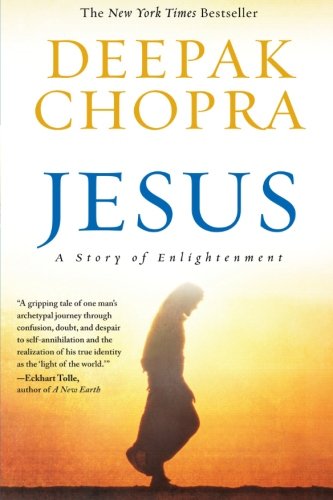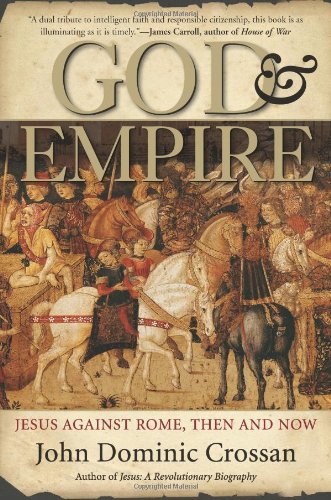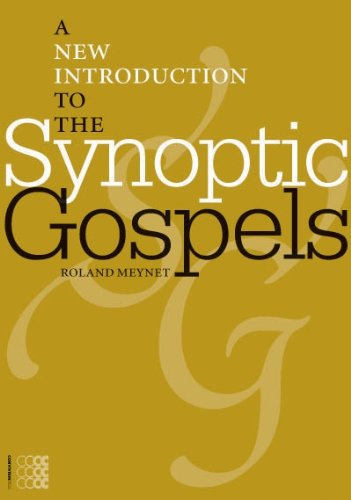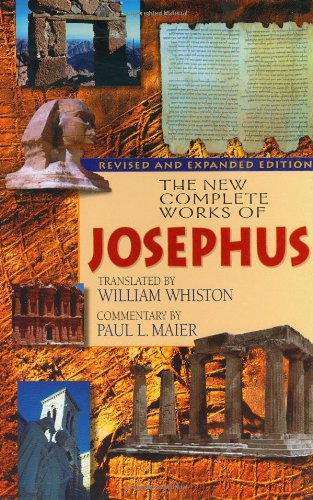Genesis 3:4-5, Thou Shalt Surely Die, part II of II
And the serpent said unto the woman, Ye shall not surely die: For God doth know that in the day ye eat thereof, then your eyes shall be opened, and ye shall be as gods, knowing good and evil.
//Two days ago, I speculated about whether God told a little white lie to Adam and Eve. Today, we hear the serpent’s opinion on the matter. God is bluffing, he promises; not only will the fruit of the tree of knowledge be delicious, it’ll open your eyes.
But did the serpent misunderstand? Perhaps God did mean a spiritual death, and the serpent was misrepresenting the spiritual promise of God, confusing the issue by speaking in terms of base, physical facts. You shall not surely die.
I grew up in a form of Christianity which encouraged abstinence from any form of religious reading other than the Bible. Such books were the work of men, not God; only the Bible is holy. But I stumbled; I ate from the tree of knowledge, and found myself outside Eden. Outside the protective fence of a belief system which shielded me from seeing the real world around me, and having to think for myself.
Did I die in that day? Yes.
But did I die in that day? No, of course not. It may be that I was born again.
Book review: Jesus: A story of Enlightenment
by Deepak Chopra
★★★
Says Chopra, “This book isn’t about the Jesus found in the New Testament, but the Jesus who was left out.” This is a novel, about Jesus’ own period of enlightenment before he began his ministry, and how he found God. Or, rather, how he found himself, the Son of God.
Jesus turns down the opportunity to join the Zealots, studies with the Essenes (whom he disappoints), and eventually begins a long and dangerous trek to find a mysterious guru, where he discovers his true soul. By the end of the book, Jesus is ready to take on the Devil, in that famed three-part temptation.
Chopra’s Eastern/Buddhist background shines where it shouldn’t. Interesting and well-written, but certainly not scriptural! And not really my thing.

Genesis 2:17, Thou Shalt Surely Die, Part I of II
But of the tree of the knowledge of good and evil, thou shalt not eat of it: for in the day that thou eatest thereof thou shalt surely die.
//We all know the story. After God promised Adam he would die on the day he ate the forbidden fruit, the serpent showed up, contradicting God’s promise. “Ye shall not surely die: For God doth know that in the day ye eat thereof, then your eyes shall be opened, and ye shall be as gods, knowing good and evil.” So Adam and Eve ate, and their eyes were opened, and nobody died.
I’m often accused of reading the bible too literally. Face value is best, unless there’s reason to think otherwise, right? God said they would die, they called God’s bluff, and nobody died. What confuses me is, why does this story need reinterpreting? Early Hebrew writers certainly found no evil in deception. On the contrary, God bestowed his blessing on several acts of deception, from Jacob deceiving his father to steal Esau’s birthright, to Jael pretending kindness before pounding a nail through Sisera’s temples as he slept.
God told a little white lie, it worked for a time until the serpent showed up and exposed the truth, and mankind fell. But by the time of the New Testament, even subtle deception seemed immoral, an activity that could never be attributed to God! Titus 1:2 even promises that God cannot lie.
So what do we do with the story of man’s downfall? We gloss it over with wordplay. We pretend God didn’t really mean “in that day,” or we pretend God meant a spiritual death, not a natural one. We ruin a great story by denying God a personality. Be honest, now: wouldn’t you find it much more interesting to meet the God that walked in the Garden, toying with his humans?
On Monday I’ll discuss another way of reading The Original Sin.
Book review: God & Empire
by John Dominic Crossan
★★★★
It’s Jesus vs. Rome. Who will win?
If you’ve read much about the first century, you’re already well aware of the conflict between Christian and Roman claims. Both sides laid claim to the Son of God. Both claimed the inauguration of a new, wonderful age. The Caesars, especially in Asia Minor, were worshipped as God and often went by the title Son of God. Caesar Augustus, in particular, was hailed as the savior of the world, the bringer of peace and prosperity.
The Christians claimed a coming kingdom, or a hidden kingdom; the Romans proved their kingdom by force and heavy presence. The Christian kingdom was not of this world; the Roman kingdom invaded every part of life. Jesus’ kingdom was one of nonviolence; the Roman kingdom was just the opposite.
Crossan highlights the conflict between the two, and what, exactly, the Christians were claiming in their “uprising.” Of particular interest, to me, was the discussion of Paul, whom Crossan divides into three categories: The radical Paul, the liberal Paul, and the conservative Paul, representing three stages of Pauline writings.
I give it four stars instead of five, not for the lack of quality, but because little is original from his other writings. It’s just organized and directed differently to emphasize a point.

Ezekiel 8:14-15, Weeping for Tammuz
Then he brought me to the door of the gate of the LORD’S house which was toward the north; and, behold, there sat women weeping for Tammuz. Then said he unto me, Hast thou seen this, O son of man? turn thee yet again, and thou shalt see greater abominations than these.
Here’s a puzzle. Why is it such an abomination to sit and weep at the gates of the LORD’s house?
It isn’t that the women are weeping, it’s who they weep for. They aren’t weeping for a friend or relative; they’re partaking in a widespread annual ritual, in which cult members mourn the death of the Sumerian god of food and vegetation.
The summer solstice marks the period of declining daylight hours, and this annually recurring cycle of the beginning of death was “celebrated” in Babylonia with a six-day funeral for the god, Tammuz. Tammuz is one of an array of dying-and-rebirthing gods, whose story is told in nature itself.
These women are honoring a Babylonian god, and doing so at the very gates of the Temple.
Book review: A New Introduction to the Synoptic Gospels
by Roland Meynet
★★★★
This book is not what I was expecting when I saw the title! Wow. When Meynet titled his book an introduction, he didn’t mean he’d be providing a surface description. He meant that after you work your way through 415 pages of analysis, you’ll have barely turned the cover on the Synoptics.
You can give a man a fish, and feed him for a day. Or, you can teach him to fish, and feed him until they quit stocking the pond. This book is meant as a university text, to teach you how to analyze the Bible as a linguist, by taking note of the links which tie the pericopes together, and trying to grasp the logic which connects them. It’s a relatively new approach to Biblical study, sometimes at odds with the historical-critical method and normal form criticism. My rating of four stars does not represent my reading enjoyment, but rather, the teaching technique and depth of study. Reading Meynet’s book is not fun; it’s work.
Seriously. You’re going to study primarily two Bible pericopes in these 415 pages: the healing of the blind man at Jericho, and the calling of the rich man . You’ll study them in context, noting each text’s sub-sequences, carefully grinding out their meaning through rhetorical analysis of all three Synoptics.
This exhausting technique does yield results. As a simple example of the strength of this type of literary Biblical analysis, consider the story of the blind man at Jericho, as told in the Gospel in Mark. Or were there two blind men healed, as Matthew relates? Exegetes in the past have wondered which version is historically accurate; Matthew or Mark? But the question misses the point of the passage. Contextual analysis to the rescue: By reading up just a little bit, in both Matthew and Mark, we find the story of the sons of Zebedee, James and John, requesting that they sit on the right and the left of Jesus when he comes into his glory. Matthew has recognized the context, and aided in its interpretation by changing one man into two. The story of the blind man has become the story of two blind men in Matthew, and we now recognize the blind men as James and John.

Revelation 4:4, The Twenty-four Elders
Surrounding the throne were twenty-four other thrones, and seated on them were twenty-four elders. They were dressed in white and had crowns of gold on their heads.
//Revelation paints a magnificent picture of the throne of God and, around it, twenty-four elders. 1 Chronicles 24 describes these twenty-four elders in detail. They comprise the governors of the house of God, of the tribe of Levi. King David gave them their priestly duties a long time ago, and the Chronicles list their names.
Ezekiel also experienced a vision of twenty-five men, representing the heads of these twenty-four orders and the high priest. Jesus, of course, serves as high priest in Revelation’s version.
In Revelation, the actions of these twenty-four elders form a couple of sly innuendos. These innuendos can only be appreciated in the light of Revelation’s denunciation of Nero Caesar, whom it refers to as the Beast of the Sea.
The elders are all wearing crowns, so the first thing they do (Revelation 4:10) is lay their crowns down at the feet of Jesus. First-century readers would be reminded of the Parthian prince Tiridates, whom Nero crowned king of Armenia. Tiridates once fell down before Nero publicly in worship, saying, “I have come to thee, my God, to worship thee as I do Mithras.” Then he laid down his crown at Nero’s feet. So, the twenty-four elders make a point of laying theirs at Jesus’ feet.
Then in the next chapter (Revelation 5:8) the elders are seen holding a harp in one hand and a bowl of incense in the other. An image of the Greek god Apollo in a similar libation stance, holding a lyre (harp) in one hand and a bowl in the other, would also be known to Revelation’s first readers. Nero, as you might guess, played the lyre and thought of himself as the god Apollo. In Revelation, immediately after mimicking Nero, the elders fall down and worship Jesus.
The lesson, of course, is that Nero Caesar is not to be worshiped; Jesus is. Revelation is a fascinating book of deep symbolism, much of which is lost on current-day readers.
Book review: Naked Pastor 101
by David Hayward
★★★★
This is David’s first collection of cartoons, 101 of them, and I hope many more follow. Cartoons just work! They help us laugh at ourselves, and then they help us think outside the box. In a cartoon, serious topics can hide behind lighthearted drawings.
And David’s work is funny. LOL funny. As the Naked Pastor, he bares his soul (not his body, sorry) about problems in the Church … often, problems that result from rigid rules or non-acceptance or unfounded assumptions about the nature of God. Most are annotated with a bit of the thought process that went into their creation.
This book is in no way disrespectful to the Church. David is an insider; he has completed masters in Theological Studies and in Ministry and Religion, and has been pastor of several churches over 25 years. That’s plenty of time for cartoonistic opinions to form, right? David admits that for this book he has purposefully chosen favorites among his less controversial drawings; rants against church vision and mission statements, and cartoons addressing the gay issue, have been omitted, so we may be drinking “Hayward light” at this time. Next time, David, lay it on us straight. We can take it.

Matthew 4:19-20, Follow Me
And he saith unto them, Follow me, and I will make you fishers of men. And they straightway left their nets, and followed him.
//This is the Gospel call given by Jesus: Follow me. It’s a precious offer, repeated by ministers and evangelists everywhere.
The question is, how? When Jesus said the words, he meant them quite literally. Drop everything, separate from your family, give your wealth to the poor, and join my entourage. We’re going to spread the Gospel news, and then we’re going to Jerusalem for a little sacrifice. Follow me. But today, there ain’t no bearded, sandaled philosopher to follow to Jerusalem anymore, so we can no longer take Jesus’ words literally.
So, as Christians, we guess at what Jesus would have meant, had he been speaking directly to us. Then we argue over our guesses, condemn other religious interpretations, and humbly pride ourselves on knowing the Truth … what Jesus really expects of us, 2,000 years later.
I grew up in a strict Christian sect which interpreted many of the teachings of Jesus and the early church quite literally. We believed the ministry must give up all and be homeless; we believed the Gospel must be freely given, taking no pay; we believed church buildings were an economic hindrance, so we gathered in private homes or rented halls when necessary. We looked down our noses at other Christians who interpreted the words “follow me” in any different manner. Somehow, we knew what Jesus would have meant, had he been talking to us instead of to a cluster of backwoods fishermen in the first century.
And while I have no argument with the teachings I grew up with, neither do I any longer have any argument with the various denominational teachings around me. How could I, after reading the Bible for myself? We can’t follow Jesus the way he really meant it, so the best we can do is … the best we can do.
Got an opinion? 0 commentsBook review: The New Complete Works of Josephus
by William Whiston and Paul L. Maier
★★★★
I don’t know if this is a particularly good translation; I’ve nothing to compare it to, since I’ve never read any other. It’s not the translation I wish to promote, it’s the writings. Every Bible scholar, especially New Testament scholars, simply MUST read Josephus.
Josephus was a Jewish historian who wrote his books during the same years that most of the New Testament was being written. That is, the latter three decades of the first century. Josephus was not particularly well-liked among Jews; he abused his governorship, he defected to the enemy when captured by the Roman legions, and he wrote his history of the war to present the Romans in a good light. Given to exaggeration, he taints nearly every chapter of his War of the Jews with self-glorification and political and religious aims. Yet, he remains our most important historian for the war of 67-70 CE, which proved to be the springboard for the spread of Christianity, and to be honest, it’s his personal agendas that make his writing so interesting.
Oddly, as much as Josephus was hated, he became very important to Christians, because of his references to Jesus Christ. But scholars now doubt their authenticity. In one passage, the famed Testimonium Flavianum, Josephus names Jesus as the Messiah. Some through the centuries even claimed Josephus to be a Christian. (If you read my book about Revelation, you’ll come away with just the opposite opinion; Josephus may have played a surprising role in the story of Revelation!)
This book contains all four of Josephus’ writings:
The Jewish War, which describes the destruction of Jerusalem and the Temple.
The Life of Flavius Josephus, his own autobiography, which ends up as little more than a defense against the various attacks on his integrity during his governorship in Galilee.
Jewish Antiquities, a Bible-driven history of the Jews from the beginning of time.
Against Apion, a defense of Judaism.

















 354 Circles
354 Circles
 603 Goodreads Friends & Fans
603 Goodreads Friends & Fans

 Hello! I'm an author, historical Jesus scholar, book reviewer, and liberal Christian, which means I appreciate and attempt to exercise the humanitarian teachings of Jesus without getting hung up on any particular supernatural or religious beliefs.
The Bible is a magnificent book that has inspired and spiritually fed generations for thousands of years, and each new century seems to bring a deeper understanding of life’s purpose. This is true of not only Christianity; through the years, our age-old religions are slowly transforming from superstitious rituals into humanitarian philosophies. In short, we are growing up, and I am thrilled to be riding the wave.
I avidly read all thought-provoking religion titles. New authors: I'd love to read and review your book!
Hello! I'm an author, historical Jesus scholar, book reviewer, and liberal Christian, which means I appreciate and attempt to exercise the humanitarian teachings of Jesus without getting hung up on any particular supernatural or religious beliefs.
The Bible is a magnificent book that has inspired and spiritually fed generations for thousands of years, and each new century seems to bring a deeper understanding of life’s purpose. This is true of not only Christianity; through the years, our age-old religions are slowly transforming from superstitious rituals into humanitarian philosophies. In short, we are growing up, and I am thrilled to be riding the wave.
I avidly read all thought-provoking religion titles. New authors: I'd love to read and review your book!
 Hi! While Lee writes the articles and reviews the books, I edit, organize, and maintain the blog. The views expressed here are Lee's but I'm his biggest supporter! :-)
Hi! While Lee writes the articles and reviews the books, I edit, organize, and maintain the blog. The views expressed here are Lee's but I'm his biggest supporter! :-)
Connect With Me!